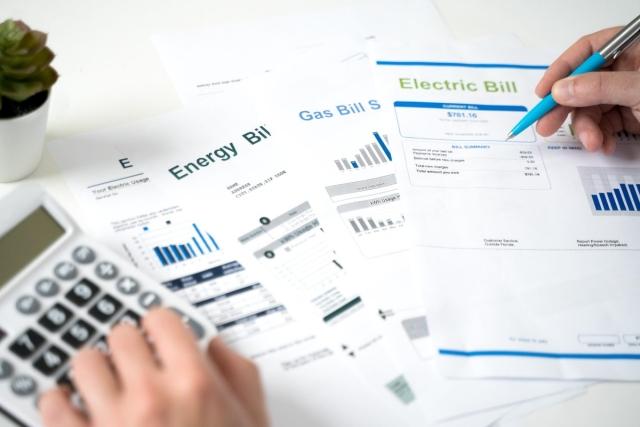When touring an apartment, it’s critical to discuss both the rent and the apartment utility costs with your property manager or landlord. Apartment utilities can be difficult to calculate. Costs are dependent on region, usage, age of home, appliances, providers, and a credit check, but they should be included in your budgeting plan.
You’ll likely have to reach out to local utility providers if you’re moving into a new apartment that doesn’t include utilities, or if the apartment doesn’t contract out to any particular company. Utility bills can fluctuate throughout the year because of seasonality, and you may end up paying more without doing the right kind of research.
Use our extensive apartment utilities guide below for all of your apartment utility questions.
How to Find Apartment Utility Providers
Are you moving out of state? You might be in a panic knowing that you need to start searching for utility providers in another state. You can find utility providers in your new location with just a quick online search.
Some apartment communities may have a set list of utility vendors that you have to use. If they don’t, you’re free to choose your own providers. A long-distance move is a big deal that requires careful planning. Let’s go over the general types of utilities most commonly found in apartments.
Water and sewer
Your water and sewer usage are measured by a meter. Your water and sewer bill can either be billed to your individual apartment or to the apartment community. Apartment communities that are given the bill will split the total amount by the number of households on the property. Tenants will then add the distributed amount to their next rent payment.
According to the Environmental Protection Agency, the average family spends more than $1,000 per year in water costs. Use tips to conserve water and shrink your water bill!
Electricity
Just like water, an apartment dweller’s electricity usage is measured using a meter. Heating and cooling units use more power than any other home appliance, including a water heater, a washing machine, and a dryer. Have no fear; the good news is that there are numerous ways to save on your energy bill.
NPR reports that a house uses an average of 908 kilowatts each month. At a cost of $0.12 per kilowatt, the average electric bill will run $109. Your bill may be more or less dependent on the size of your apartment, the number of appliances, the appliances' age, and the number of people living in your home.
Natural gas
Does your apartment use natural gas? Most natural gas companies measure a customer’s usage with the therm metric. You can view your annual usage trend on your gas bill, so you can track which months have a heavier usage than others.
The average price of a therm is $1.05, according to the Bureau of Labor Statistics. Renters will see more therms in winter because of heating the apartment, whereas the summer months will have a decrease in gas usage but a spike in electric (due to cooling).
Trash
Your trash expense is generally included in your rent unless your apartment has valet waste services. You typically don’t get to choose the provider. Trash pickup companies are contracted by the apartment community and residents pay a monthly fee.
Renters tend to pay between $25 and $35 a month for valet trash, according to Property Manager Insider.
Internet, cable, and phone
You can easily create and set up your Wi-Fi, cable, and phone plan from inside your apartment. These utility costs vary greatly depending on the Internet speed, phone, and cable plans you go with. Shop around for the plan and rate that works best for your household.
Security
Safety is a top priority for renters in an apartment. Talk with your property manager about installing a security system in the unit.
Home security services can go for $30 a month and may include a service fee for the equipment.
Budgeting Tips for Apartment Utility Costs
Creating a budget for your apartment utilities is similar to budgeting for an apartment. You’ll want to save a small amount of your paycheck to go towards your utility budget. The apartment utility bills won’t be the same price each month, since the total cost factors in usage, inflation, rental equipment, service fees, and seasonality.
If you’re beginning to set up utilities in your home, a local provider may check your credit history to see your prior bill payment history.
During your search, you’ll see that a lot of utility providers include an easy-to-use utility cost calculator on their website. Renters may want to look for an apartment with utilities already included for convenience. The benefit of choosing a utilities-included apartment is that you don’t have to pay for an additional service because it’s already incorporated into your rent price.
Seasonal Tips to Save on Apartment Utility Bills
Seasonality affects your utility bills. Hot and humid outside temperatures will make you blast the air conditioning inside your apartment. Cooler weather might make your home too cold, making you reach for the thermostat to increase the heat. Slash your utility bills with these helpful tips!
Spring
You can definitely save on your spring utility bills. Opening your windows and letting in a cross breeze can help lower your electric bill. Also, put in a maintenance request to have your air conditioner's filters changed. According to the Department of Energy, frequently changing the filter can decrease energy consumption by 15 percent.
Summer
Keeping the blinds closed and curtains shut can block out unwanted heat in your home. Turning on the ceiling fans will lower your home temperature by a couple of degrees, affording you the opportunity to turn off your thermostat temporarily and still stay cool.
Fall
Fall is an excellent time to seal off any openings that may leak out air, which could increase your gas and electric bills. Weather this time of year is typically pleasant and opening the windows can keep your home temperature regulated.
Winter
You need to keep warm in the winter without cranking up the heat. Keep your heat bill low by opening up the blinds to let in the sunshine. Bundling up with socks and long sleeves can help you save money as well.
If you have a fireplace, you’ll be able to keep the thermostat lower and let the fire heat your home instead.
Splitting Utilities with Roommates
Managing money and bills with roommates can be challenging. You might have that one roommate who likes to sleep with the TV on and run up the electric bill, and another who enjoys the comforts of a long, hot shower.
Draft a roommate agreement to make sure everyone is paying their appropriate share of apartment utilities. If it’s in writing, everyone in the household can know exactly what’s expected of them. Make it clear how you’ll split the utility costs. Is one person collecting the money? State exactly who that someone is in the roommate agreement.
Two common ways to split money is by dividing the total cost evenly, and the second way is to portion out the cost based on income. Whichever way you end up choosing, sharing the bills with roommates helps relieve some financial burdens.
Apartment utilities are never going away. Hopefully, this article helped answer some of your questions about them. Whether you stay in your apartment long term or move after a year, you’ll run into utilities again in your next place. After all, you need stuff like water, electricity, and gas to live comfortably, right?
Looking for Rentals With Utilities Included?
You don't have to wonder if the monthly rent includes utilities or not. On Apartments.com, you can search for specific rentals that include utilities such as water and trash pickup by filtering your location results by 'utilities included' under the 'popular amenities' section.
Happy renting!
Frequently Asked Questions About Apartment Utilities
What is the difference between an electric utility and an electricity provider?
The electric utility is the company that handles the customer service side of the electric business. They maintain the power lines, poles, and are the customers' point of contact. When you think of electric companies, the electric utility is what you’re thinking of. The electricity provider is the company that purchases the actual electricity from the generators, and then sells it to the public with the help of the utility company.
What is the average cost of monthly utilities for an apartment?
The cost of monthly utilities will vary for every renter. Utility costs depend on the size of your rental, your location, your usage, and seasonal utility rates. To get a better idea of what your average utility cost will be, look at your local rates.
Who typically pays for utilities in an apartment?
It’s up to property management companies to decide which utilities are included in your rent. The most common utilities apartment complexes cover are trash, water, and sewage. Check with your landlord and lease agreement to make sure you know what utilities you need to set up on your own and which ones are set up for you.
Do utility-included apartments have a limit on usage?
Many apartments that have utilities included charge overage fees if you go beyond a set amount of usage. The set amount of usage should be stated in your lease agreement.






